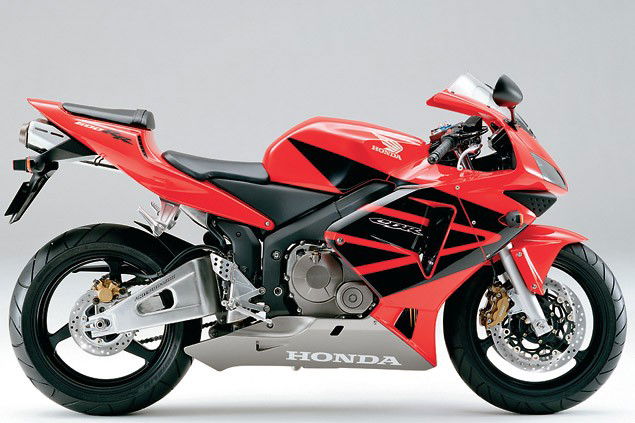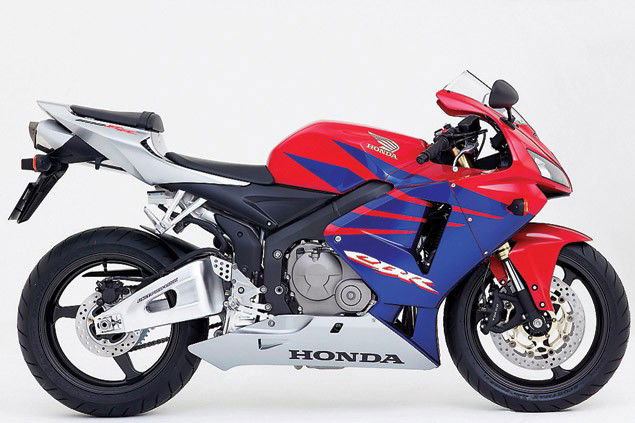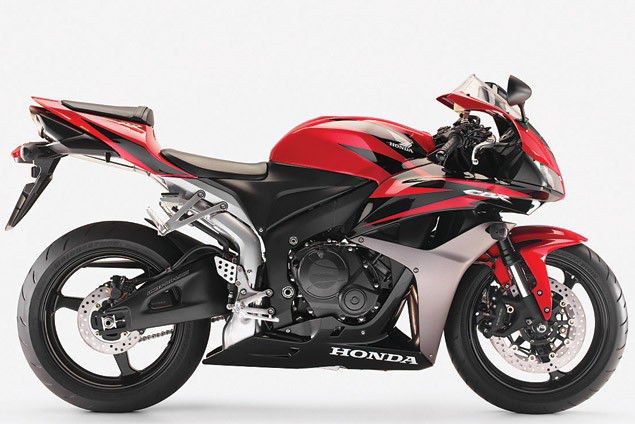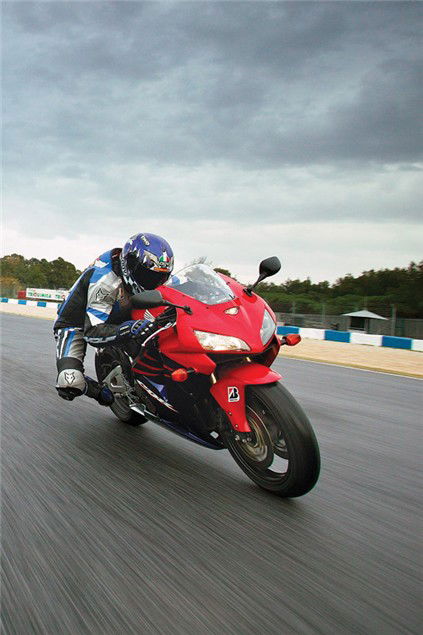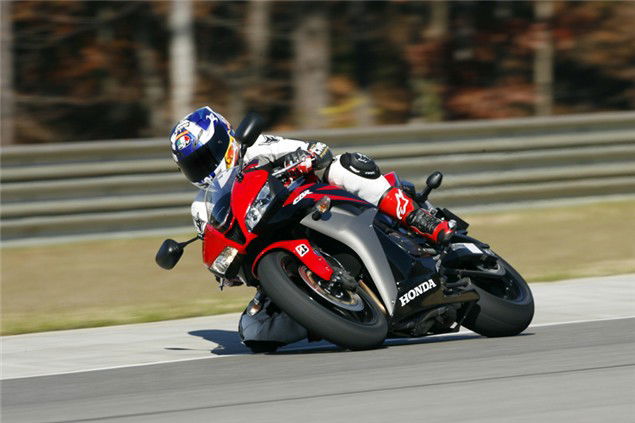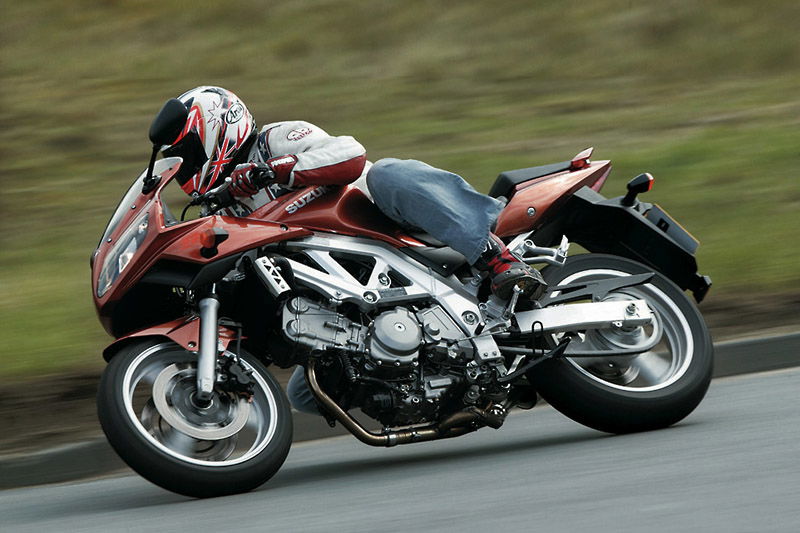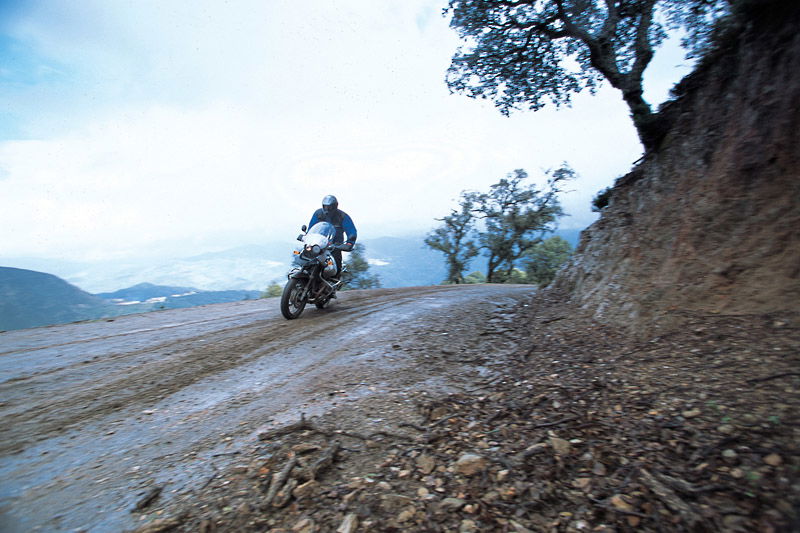Buyer Guide: Honda CBR600RR
The ultimate buyer’s guide to the CBR600RR written by the people who actually own the bike...

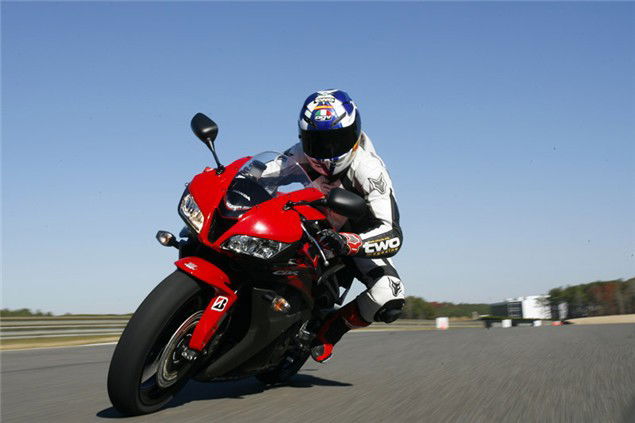
Click to view: Honda CBR600RR owners reviews, specs and image galleries.
Double R. It doesn’t sound much. Two little letters replacing the ‘F’ at the end of the well established CBR600. But they mean everything. RR means double spiteful, track focused, GSX-R600-eating bad boy with some mean looks to go with it.
Honda’s CBR600F had been a relatively rapid, competent, all-round machine which had sold well for years but it was bland and wouldn’t offend your Granny. In 2003 Honda launched the CBR600RR after testing the water with the CBR600F Sport. The RR was part breath of fresh air and part poke in the eye with a sharp stick. It had an air of HRC quality about it.
The RR is a machine designed to win races and it’s incredibly fast on the road or track. It exudes an aura of calm at silly speeds when other machines would be bouncing and flapping and generally terrifying their rider, which means you can go quicker still. The down side is the bike’s neither practical nor comfy but Honda make the Deauville if that’s what you’re after.
Owners of the RR quickly get used to revving the balls out of the motor, slipping the clutch and generally riding it like a two-stroke. Yes, it isn’t as gutsy as the ZX-6R with its 636cc engine, but if you want every ride to be a triple espresso shot of revs, lean and high speed thrills, look no further than the CBR600RR. And it’s a Honda, so it’s reliable.
Honda CBR600RR Specifications
2003
Engine 599cc, liquid cooled, DOHC, 16v, in-line four Power 115bhp @ 13,000rpm Top speed 160mph
Torque 49ftlb @ 11,000rpm Dry weight 169kg Seat height 820mm Fuel capacity 18L
2005
Engine 599cc, liquid cooled, DOHC, 16v, in-line four Power 115bhp @ 13,000rpm
Torque 49ftlb @ 11,000rpm Dry weight 169kg Seat height 820mm Fuel capacity 18L
2007
Engine 599cc, liquid cooled, DOHC, 16v, in-line four Power 118bhp @ 13,500rpm Top speed 160mph
Torque 49ftlb @ 11,250rpm Dry weight 156kg Seat height 820mm Fuel capacity 18L
The nuts & bolts
Running costs
Like so many fuel injected Hondas, the CBR600RR runs rich as standard and this means poor fuel consumption. Owners report anything between 22 and 55mpg but the average figure was 37 giving about 110-120 miles between fill ups. Not brilliant for a lightweight, aerodynamic middleweight.
A properly set up piggyback ECU like a Power Commander will give better fuel consumption and more power too, especially if a non-standard exhaust and/or air filter is fitted.
Insurance is high for a 600 – Norwich Union group 15; the same as an Aprilia Tuono 1000 so get a quote before you buy.
Tyres
Common sizes (120 front, 180 rear) means all the best modern tyres fit the RR. The most popular choice in our survey was Pirelli’s Diablo Corsa. Michelin Pilot 2CTs also get the thumbs up from plenty of owners. Dunlop D208s are liked by some but not others (and have been superceded by the superior Dunlop Qualifier) and Bridgestone BT014s have fans as well.
A handful of riders use Bridgestone BT 020 / 021 – sports touring rubber which they say gives stable year round performance and more miles than more racy rubber.
Front tyre life varies between 2,000 and 10,000 miles with track day nutters and racers getting less. The average is 5,400. Rears life is typically shorter at 1,800 to 10,000, average 3,800. Use that rubber well!
Consumables
Genuine Honda brake pads are by far the most popular and no-one’s got a bad word to say about them. EBC HH are the most common aftermarket pad (they’re cheaper than genuine Honda items) and they get good reviews from those who have fitted them. A smattering have tried Carbone Lorraine, SBS and Ferodo and they’re happy with them too. It seems the set up is so good any pads work well, even ‘03/’04 bikes with non-radial calipers. Visordown recons the genuine Honda pads will be kindest to the discs.
Chain and sprockets seem to last pretty well – but if a bike gets ridden very hard or wheelied a lot they can need replacing in under 10,000 miles. A very common modification is altering the sprockets for better acceleration (larger rear and/or smaller front) as the bike lacks low down power, especially the earlier models.
Owner Case Study: "I’ve gone modding mad"
Matt Rogers, a 26 year old from South Yorkshire who works in the construction industry has spent over £2,500 modifying his 2003 CBR600RR.
"I planned to keep it standard when I bought it but the guys I ride with were all fitting different parts on their bikes and I ended up doing it too.
"I’ve fitted a Yoshimura RS5 exhaust – just the can but I’m planning to get the down pipes soon. It’s also got a B&C race air filter and a custom mapped Power Commander. When the bike was standard it felt a little flat but with those it’s definitely a bit better.
"I’ve also got an Öhlins steering damper with Harris fitting kit, Technoflex double bubble screen, Harris tail tidy, stem plug; well almost everything I can get from the Harris catalogue really. I had Harris rearsets but I took them off as I preferred the position of the standard Honda pegs. I’ll get the headers this winter along with Dymag six spoke magnesium wheels and wavy discs and then it’ll be finished. Probably.
"I could have bought a bigger bike with all the money I’ve spent but I wouldn’t want to. The guys I ride with have 750s and 1000s and my 600 is much quicker into and out of the corners than them. They always want to try mine."
Maintenance
- How much do owners do themselves?
None – 20%
Minor jobs only – 41%
Everything – 39%
It’s a high tech bike dripping MotoGP technology but servicing’s not too complex and within reach of most DIY mechanics. There’s a minor service needed every 4,000 miles, an intermediate at 8,000 with the biggy (including valve clearance checks) at 16,000. Recon on paying roughly £100, £200 and £350 respectively.
What goes wrong
Three people who completed our questionnaire (our or 41 in total) had major engine problems. One had the cams replaced as they were showing signs of wear, two others needed rebores due to burning oil. That’s slightly worrying. In the main it’s a reliable bike though.
There are a few niggles. The buttons on the clocks can fail or even come lose so check they work on any bike you’re looking over. The need to be light weight means the battery’s tiny and a couple of weeks standing may drain it to the point it won’t start, especially if an alarm’s fitted. Leave the lights on for five minutes with the engine off then see if it can turn it over.
We’ve heard of the odd very rare case of camchain tensioners causing problems – the classic Honda Achilles Heel. Listen for a machine gun rattle from tickover – it’s not an expensive fix anyway. But still a pain.
Corrosion between the rear wheel and brake disc can cause distortion so check that too.
Check the bolts that hold the rider seat in place as they can get cross threaded and damage the frame.
Finish
Unlike most modern bikes, over 90% of CBR600RR owners are very pleased with their bikes’ finish. Where there are grumbles, they relate to the paint, most often on the tank but occasionally on the belly pan. The swing arm and wheels also get a mention but overall the bike’s well finished which is impressive in these days of eco friendly paints and finishing techniques. Nice one Honda.
Tuning and modification
It’s a sharp looking machine as standard and few owners change the bike to improve its looks. Of those that do tidying up the rear end with tail tidys / fender eliminators is popular as are smaller indicators. Crash protection’s quite common with R&G being the number one brand fitted by owners. Paul Haswell fitted a
CBR1000RR rear seat cover to his 2004 bike as he recons it looks better than CBR600RR one. Double bubble screens are quite popular and give a little more wind protection.
Power Commanders and exhaust are very common mods to give more noise, power and improved fuel consumption. Akropovic is the most popular and highly rated by owners too. Yoshimura are popular too as is Micron.
One owner, Charles Humphrey, fitted shortened velocity stacks to get more top end power but was disappointed as they only gave half a horsepower and made the bike run rich at low rpm.
Suspension
The rear shock on 2003/’04 models could fade if ridden hard by a heavy rider, partly as it’s shielded from the wind by the swing arm. All the major suppliers do alternatives but you’re looking at £400 upwards. The forks are pretty good as standard too but they’re fully rebuildable and some riders get them done to suit their exact weight and riding style. Reckon on paying £300 or so – but it’ll transform an older bike.
Owner Case Study: "I rode to the south of France"
Jon Hawkes, 21, a Eurotunnel employee from Kent put on a backpack and rode the 600 miles to visit his family in the South of France on his 2007 CBR600RR. His arse was never troubled - the RR can cover miles.
"Although it’s a proper sports bike it was fine on the journey even though the weather was pretty hellish. I hadn’t even fitted a double bubble screen but I didn’t get any aches or pains during the journey. The seat’s a bit of a plank but it’s not too bad. The riding position’s excellent for a class leading sports bike but I didn’t bother with panniers, I carried my luggage in a rucksack.
"When I got there I went for some ride outs with family who have bikes too. The roads were amazing and the CBR was absolutely fantastic. The acceleration and handling were unbelievable. It’s stunningly agile, gives you a feeling of supreme confidence and is so, so easy to go very fast on. It always seems to soak up errors and keep me on track.
"Once I had a tyre blow out and steering damper prevented what seemed like an imminent tank slapper, so I recommend fitting one of them!
"I’ve added R&G crash bungs, unused yet (crossed fingers) but they look very good and feel solidly mounted. The single seat cowel looks amazing.”
